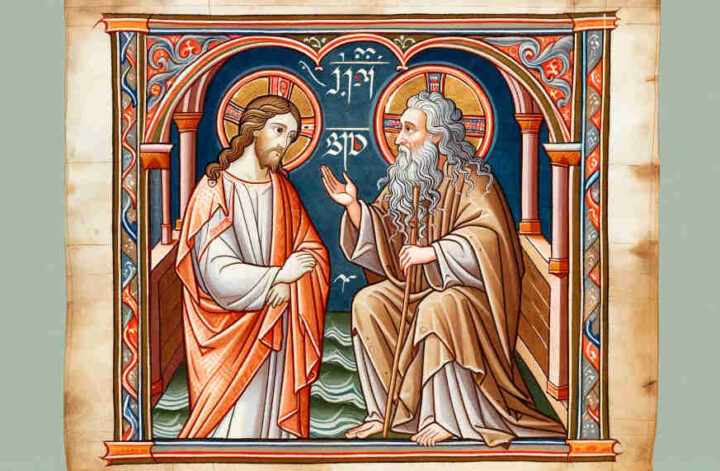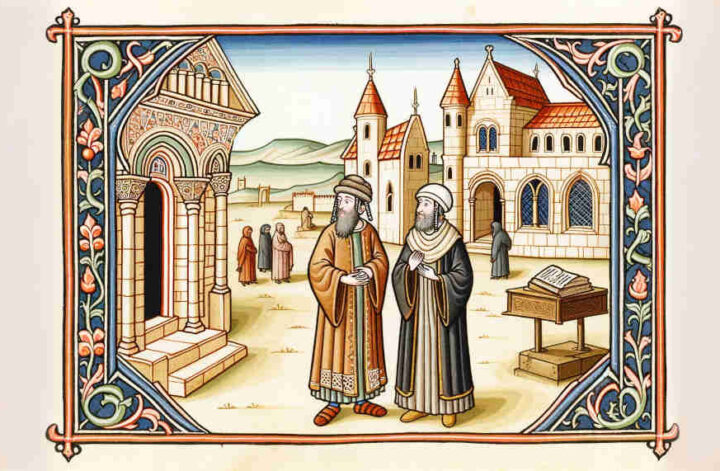Email from Thomas Anderson: “Rabbi Joshua, I’ve come across some disturbing information online regarding the Noahide Laws. The quote I found, from the Babylonian Talmud, Sanhedrin 56A, Steinsaltz edition, Vol. XVIII, page 92, states: ‘If a non-Jew violated one of the seven Noahide laws, he is liable to death by decapitation.’ This source was used to argue that the Noahide movement is a means for Jews to enforce the renunciation of Jesus, on the grounds that Jews view Christianity as idolatry, and thus as a violation of the Noahide Laws. They claim this would mean that anyone who believes in Jesus could be punished by death. This interpretation is very concerning to me, and I seek your guidance to understand the truth.”
Response from Rabbi Joshua
Shalom Thomas, I appreciate your reaching out for clarity on such a grave matter. It is essential to address these claims with a careful examination of Jewish law and philosophy.
The Talmudic Quote and Its Context
The quote you’ve mentioned from the Talmud does indeed discuss the theoretical legal consequences for a non-Jew who violates the Noahide laws within the framework of a Jewish court system. However, it is vital to understand the context in which these discussions occurred. The Talmud is a complex legal and ethical document that includes much debate and discussion, often of a theoretical nature. The passage refers to a legal system that has not been in place for over a thousand years and was never intended to be applied universally.
The Historical Context of Jewish Law
Jewish law, or Halakha, governs the lives of Jews and does not seek to impose itself on those outside the faith. The discussions in the Talmud regarding the Noahide laws are a part of Jewish legal study but were never meant as a practical guide for governing non-Jews. The enforcement of such penalties would have only been within the context of a fully autonomous and sovereign Jewish nation with an established Sanhedrin, which has not existed for centuries.
Noahide Laws and Non-Jews
The Noahide Laws are seen by Jews as a set of universal moral principles for all humanity. The contemporary Noahide movement is about non-Jews voluntarily choosing to follow these laws due to their ethical appeal. It is not, and never has been, about coercing beliefs or enforcing penalties.
Judaism and Other Religions
Judaism does not seek to denounce the sacred beliefs of others. While Judaism does not share the Christian belief in Jesus as a deity, this disagreement in theology is approached with respect. In fact, most rabbinical authorities agree that Christianity does not constitute idolatry for non-Jews, and thus, the respect for religious diversity remains intact.
Addressing Misinformation
The claims that you’ve encountered about the Noahide movement are based on a misunderstanding and misrepresentation of Jewish texts and intentions. Such interpretations are not only incorrect but harmful, as they spread fear and animosity.
Concluding Words
Thomas, in these times when misinformation is easily spread, it is more important than ever to seek truth and understanding. I commend you for your diligence in seeking clarification. Jewish tradition values peace, respect, and the dignity of all human beings, and the Noahide Laws are seen as a means to endorse these universal values.
May your search for knowledge lead you to peace and truth, and may we all strive for a world of mutual respect and understanding, regardless of our diverse beliefs and practices. If you have any further questions, please do not hesitate to ask.


